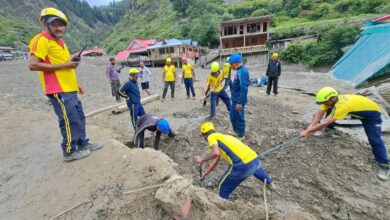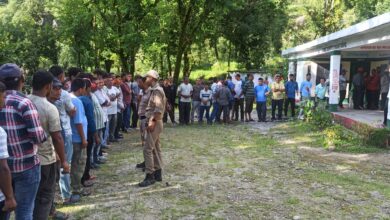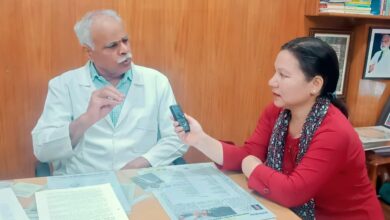25% of schools in Uttarakhand have been upgraded to smart classes under the Sampark Yojana
Chief Secretary Radha Raturi reviewed the Sampark Yojana under secondary education in the state

Dehradun | March 4, 2025
A total of 4,337 primary and upper primary schools in Uttarakhand have been covered under the Sampark Yojana. 25% of the schools in the state have been upgraded with smart classes under this scheme.
At the Secretariat, Chief Secretary Radha Raturi reviewed the Sampark Yojana under the Secondary Education Department, focusing on the use of Teaching-Learning Materials (TLM) and digital resources in districts. During the review, the above data was presented.
Sampark Yojana Implementation
It was reported that 3,237 primary schools and 1,100 upper primary schools—a total of 4,337 schools—have been covered under the Sampark Yojana. Additionally, 25% of schools in the state have been upgraded with smart classes.
Under the MoU between Samagra Shiksha Uttarakhand and Sampark Foundation, the Sampark Yojana has been active since 2014 across 13 districts and 95 blocks, covering 11,479 schools. Through this initiative, efforts are being made to upgrade schools into smart classrooms using:
- Digital resources
- TV devices and Smart LED TVs
- Sampark SmartShala FLN & Science TV devices (with over 1,000 offline content pieces)
- Educational videos
Monitoring and Review
The Chief Secretary instructed all District Magistrates (DMs) to review the Sampark Yojana at least once a month. The DM Dashboard will be used for continuous monitoring of the scheme.
Additionally, DMs have been directed to review the scheme’s implementation with DEOs and BEOs to maximize its benefits. The Vidya Samiksha Kendra will also be used for monitoring.
Directives for Effective Implementation
The Education Department has been instructed to issue a circular to:
- District Education Officers (DEOs)
- Principals of District Institutes of Education and Training (DIETs)
The circular will emphasize active participation in reviewing and implementing the Sampark Yojana effectively.
Special Focus Areas
The Chief Secretary emphasized special attention to implementing the scheme in:
- Champawat
- Sitarganj
- Pauri
- Khirsu
- Didihat
- Ukhimath Blocks
She directed officials to integrate technology-driven learning tools to enhance the quality of education and provide students with an improved and interactive learning experience.
Community Participation
The Chief Secretary stressed making Sampark Yojana a major education movement. She instructed officials to ensure active participation from:
- Block Education Officers (BEOs)
- Public Representatives
- Gram Panchayats
- Parents
- The general public
Teacher’s Report Card Launched
During the meeting, Chief Secretary Radha Raturi also launched the “Teacher’s Report Card”, developed by the Education Department and Sampark Foundation.
Officials Present
The meeting was attended by:
- Secretary Ravi Nath Raman
- Education Department officials
- All District Magistrates (virtually)




